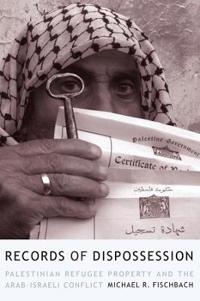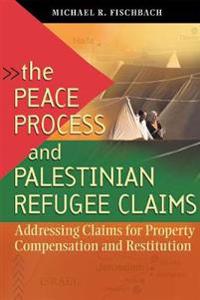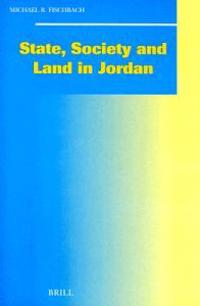Records of Dispossession (Inbunden)
avMichael R. Fischbach
ISBN: 9780231129787 - UTGIVEN: 200311No issue in the Arab-Israeli conflict has proven more intractable than the status of the Palestinian refugees. This work focuses on the controversial question of the property left behind by the refugees during the first Arab-Israeli war in 1948. Beyond discussing the extent of the refugees'losses an[...]
Jewish Property Claims Against Arab Countries (Övrig)
avMichael R. Fischbach
ISBN: 9780231135382 - UTGIVEN: 2008-08-01In the twenty years that followed the Arab-Israeli war of 1948, 800,000 Jews left their homes in Syria, Egypt, Iraq, Yemen, Libya, Morocco, and several other Arab countries. Although the causes of this exodus varied, restrictive governmental measures and an outburst of anti-Semitic feeling during an[...]
Key Debates in Anthropology (Häftad)
avMichael R. Fischbach
ISBN: 9780415150200 - UTGIVEN: 199610Every year, leading social anthropologists meet to debate a motion at the heart of current theoretical developments in their subject and this book includes the first six of these debates, spanning the period from 1988 to 1993. Each debate has four principal speakers: one to propose the motion, anoth[...]
The Peace Process and Palestinian Refugee Claims (Häftad)
avMichael R. Fischbach
ISBN: 9781929223800 - UTGIVEN: 200601The property abandoned by Palestinian refugees in 1948 is an acutely sensitive subject for Palestinians and Israelis alike, and wary negotiators have often steered clear of so impassioned an issue. But the failure to deal with claims for compensation or restitution has ultimately served only to unde[...]
State, Society, and Land in Jordan (Inbunden)
avMichael R. Fischbach
ISBN: 9789004119123 - UTGIVEN: 2000-09Examines how state and society conceptualized land ownership in Jordan from the late Ottoman era through the 1950s, and how the resulting interaction between them shaped the socio-economic and political contours of modern Jordan. The book details Ottoman, British and Jordanian land and taxation poli[...]







